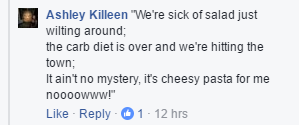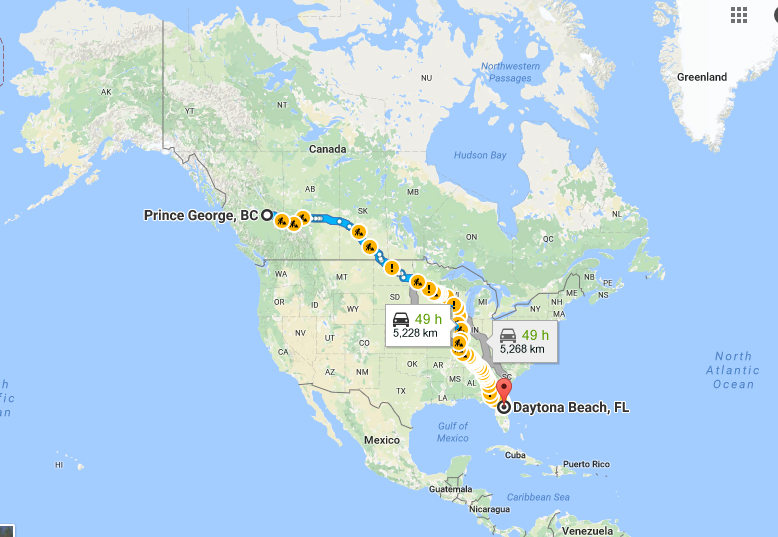For someone writing fiction, you really don't want your novel to read like a data entry report. But every time she gets to any kind of description, her brain tells her to cut out the fluff. She feels forced to write in details and then hates them because it goes because need-to-know facts.
Now this advice I had to give her without actually seeing a sample of her work, so it's hard for me to judge how much of this she is just being self-conscious about, ie. she doesn't go on for 3 pages talking about how her MC's hair shimmers in various types of lighting and therefore feels underwhelmed by her descriptions. Or how much she is really cutting out, ie. "Female human talks to male human. They engage in lengthy conversation. They agree to mate for pleasure purposes."
So for now let's focus on the actual problem, which is the step that happens before the writing.
Brain Re-Set
Getting yourself into Writing Brain is key regardless of what kind of mental obstacle you're facing. I have to tackle this one all of the time, and honestly I'm more likely to avoid writing ****NOT THE RIGHT CHOICE!!!!**** than I am to dedicate myself to overcoming it.
Last week I posted about a spontaneous creative exchange I had with a friend. It forced me to tap into the silly part of my brain, the one that comes without outlines or rough-drafts, without edits or polish. That was the fire I needed to get going.
Tip #1: Just Get Creative. This is the one piece of writing advice that you will hear ad nauseum. Everyone will tell you to just start writing, anything, just write.
And while I am very aware of this, and have given it as advice many times, I am a total hypocrite most of the time when facing my own writing blocks. Whatever I'm working on becomes a chore on my list and I can't just sit around and play while there's something I have to do! Which totally kills that creative flow and doesn't work well for anyone!
So please remember that getting creative doesn't always mean having to write.
Music. I find music helps. I create playlists that reflect scenes of my work to help me get lost into those moment again. If you can play music, do it, whether you're composing, playing through a songbook, or just messing around, get your brain into a non-work space. Sing. Make drums out of kitchen supplies. Change the lyrics of a popular song in a way that would reflect the national anthem of sperm whales.... You get the idea...
Movement. Dance. Run. Heck, I could just pace around a coffee table for hours. Play with your pet. Play Hot Wheels with your kids. Play Hot Wheels by yourself. Chase after bubbles. Do something that distracts your brain from focusing on "work". If that means structured exercise, do that. If it means finding a swing set and going for a swing, do that. I will always recommend the swing!
Imagination Games. Play around with mash-up ideas. Take characters, settings, dialogue, anything at all, and pop it into a different world. Whether you write about it, draw it, paint it, or just talk to yourself using different voices for how Mr. Darcy would handle an Ebeneezer Scrooge type encounter with the ghost of Dumbledore, or Mr. T, or Elmo. This is pretty much what I ended up doing - trying to re-create "Going Back to Hogwarts" in a way that promoted cheesy pasta... in Detroit...
Tip #2. Ghost Read. This is the advice I actually gave this writer. Because she was feeling put out by a very specific writing issue, it was clear to me that she had something in her mind of what it is she wanted her writing to look like. And since she was in the revision stage, she needed to make it clear to herself what she was trying to achieve.
Find an author who writes in a way that you admire or strive to equal.
Before even opening your draft, read a few pages of great exposition. Appreciate the details, the flow, etc.
Take a scene from your own work. Write it as *insert author name here* would.
Repeat this for all of your trouble scenes.
Then reread your whole story. Change the parts that aren't you.
Step back and put it in the hands of someone you trust. Let them decide what's too much, not enough, or takes on a different narrative voice.
Believe me, if I can tell that an author put a few years between one chapter and the next, your reader will be able to tell if you start adopting too much of other author's voice.
The key to this whole activity is to get out of auto-pilot. If your brain says "enter code", you need to pretend to be someone who doesn't write in "code". It might take 18 revisions, but that's what writers do. We do whatever it takes to get it right! Your story deserves that much!
If you need to practice, do this activity with a mash-up of authors. Want to write like Stephen King? Have "him" re-write Charlotte's Web - not all of it, just a few scenes. Get comfortable writing in the style you feel that you're lacking.
The End
This will be my last Tuesday Writing Tip as I shift gears for NaNoWriMo. No idea yet what I'll be posting during November, but I'd like to walk you through some of this new novel.
In the meantime, I'm happy to answer any question as best as I can, so please feel free to post a comment here, tweet me, or post a question on my Goodreads page. I won't pretend to be an expert in this field, but I can share my experiences as a writer and reader, and I like to think that as a teacher I've gotten pretty good at personalizing approaches to learning for different strengths.
Who knows, your questions could even help me in my own writing process!








 RSS Feed
RSS Feed